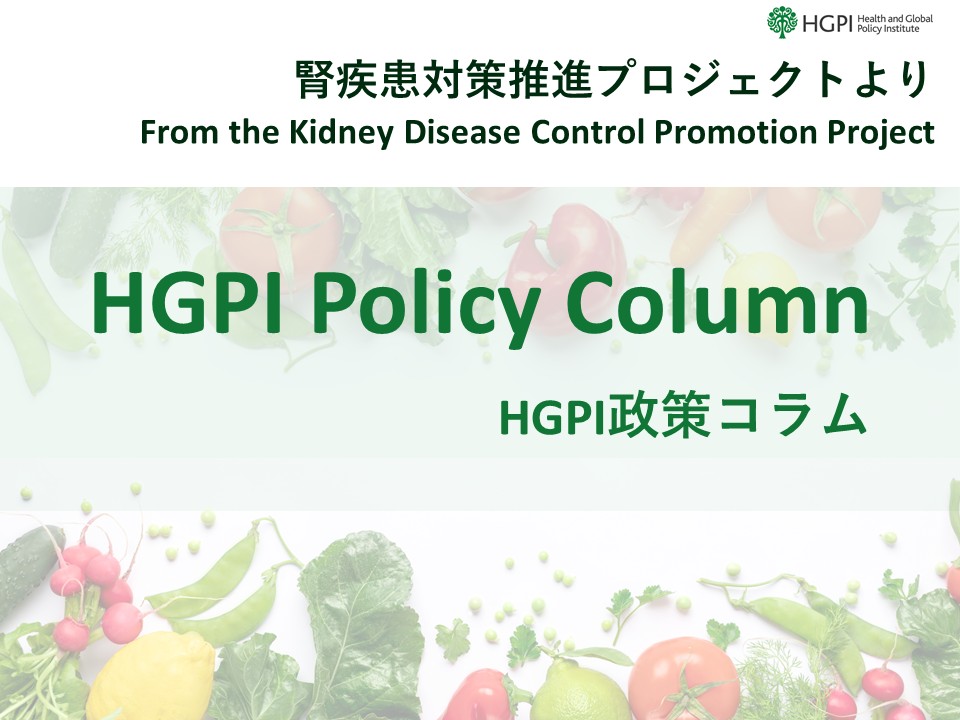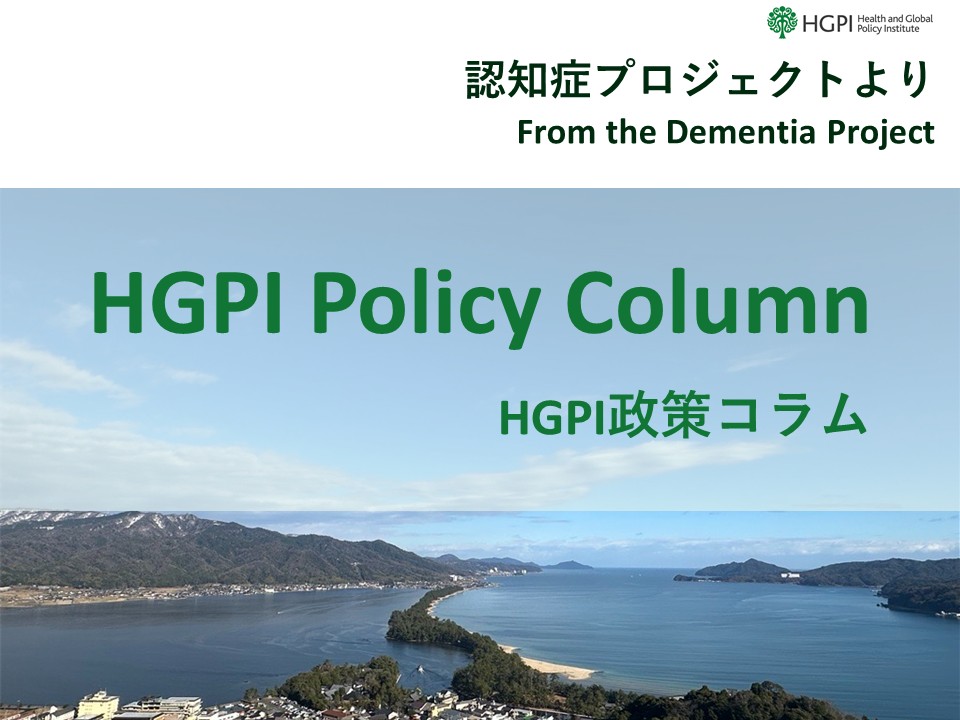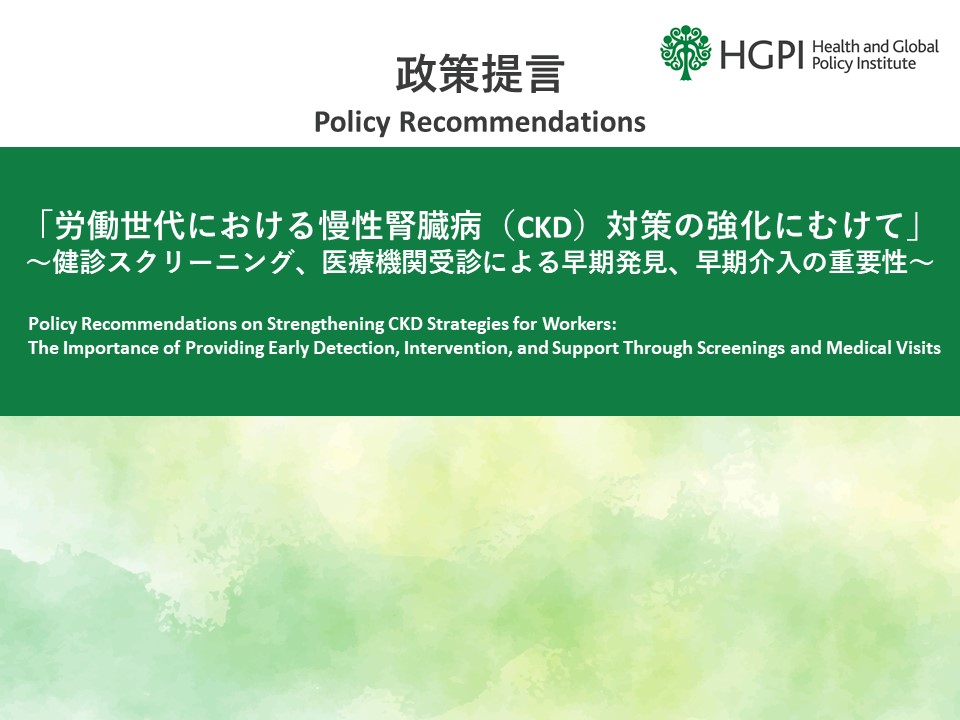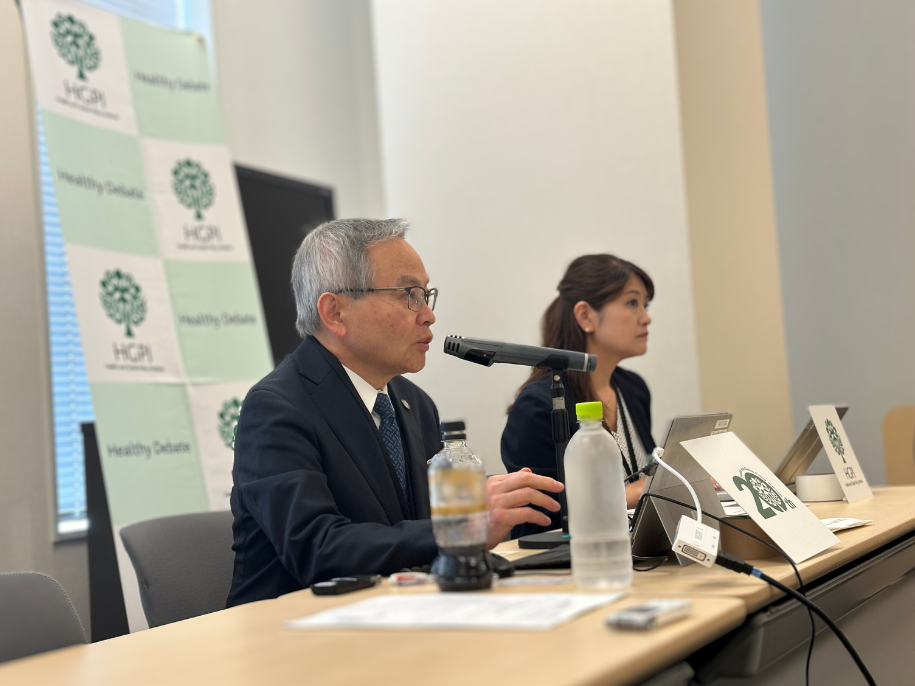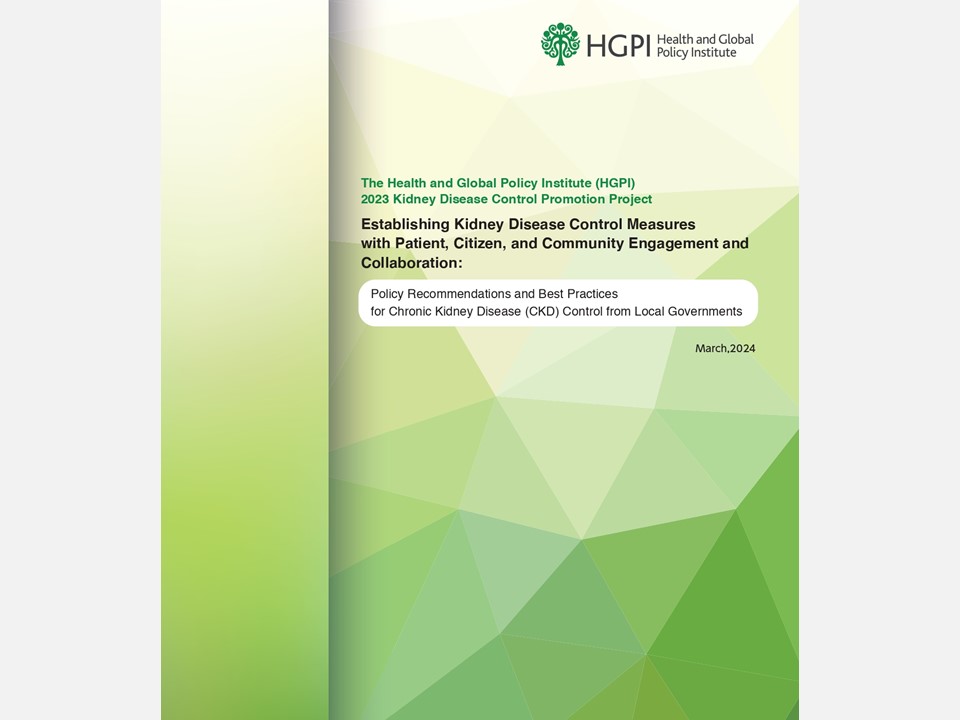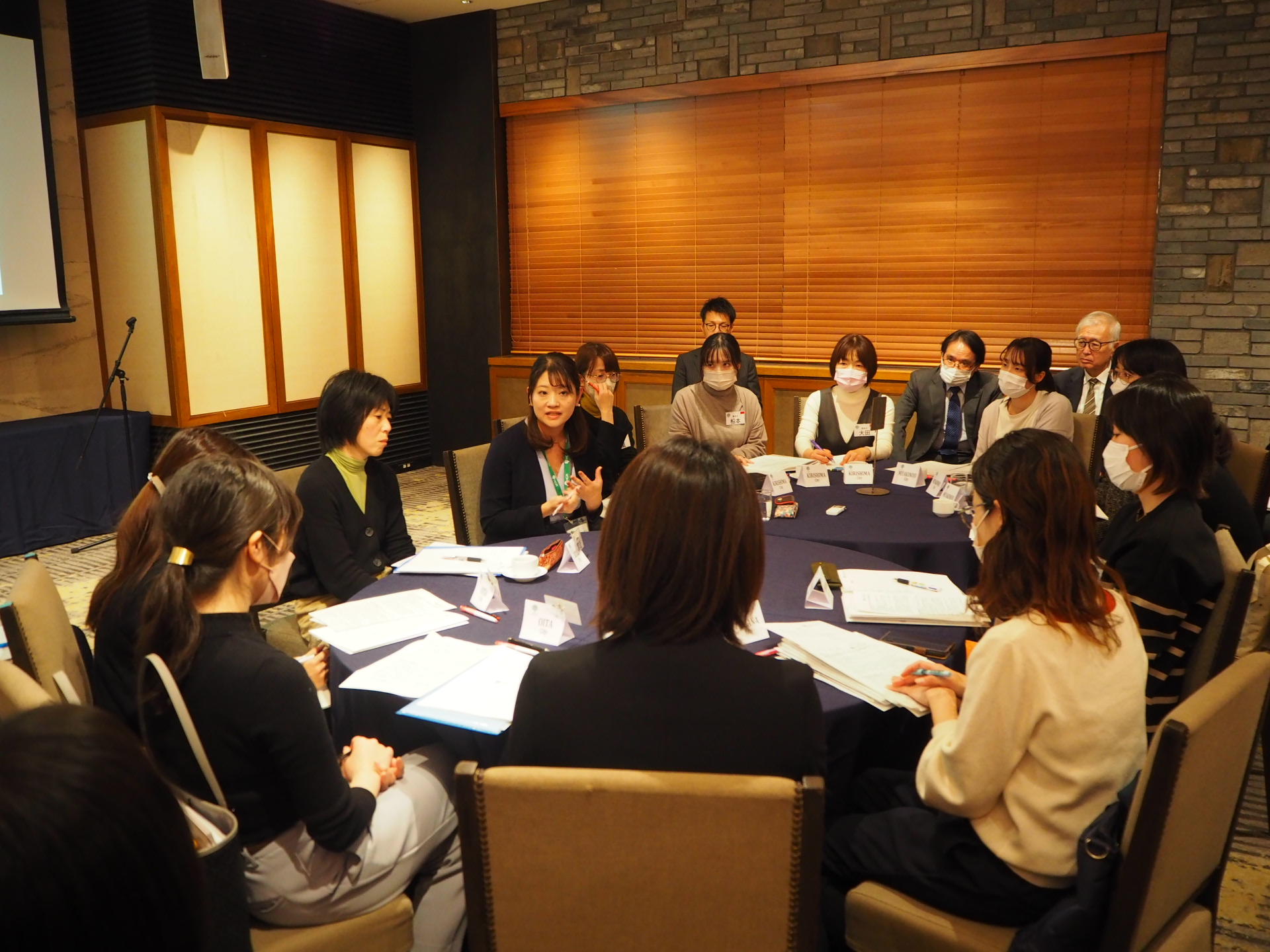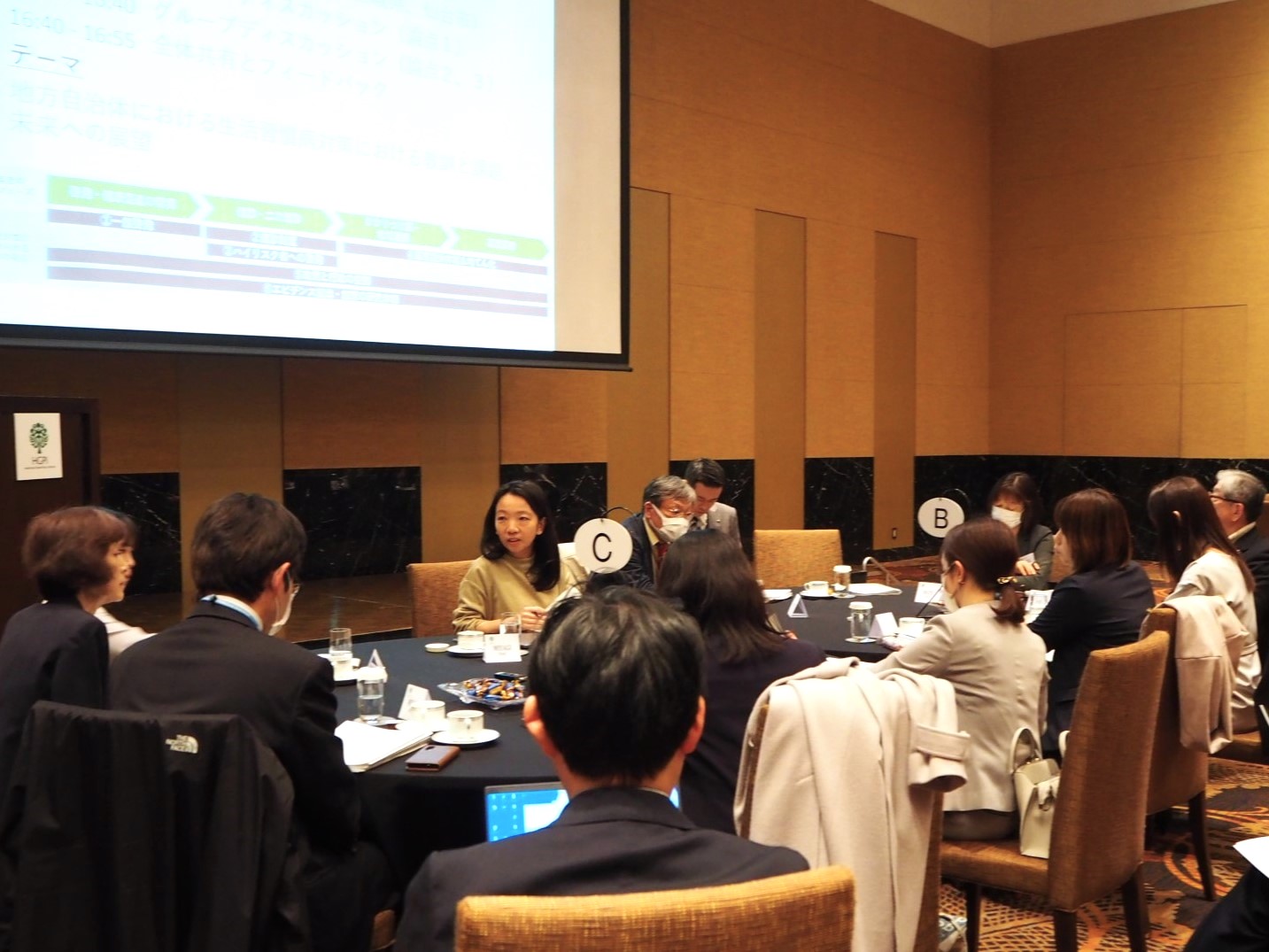[HGPI Policy Column] (No.54) From the Kidney Disease Control Promotion Project “The Promotion of Kidney Disease Measures Through Multi-Stakeholder Collaboration”
date : 3/13/2025
Tags: HGPI Policy Column, Kidney Disease, NCDs
![[HGPI Policy Column] (No.54) From the Kidney Disease Control Promotion Project “The Promotion of Kidney Disease Measures Through Multi-Stakeholder Collaboration”](https://hgpi.org/en/wp-content/uploads/sites/2/HGPI_20250313_worldkidneydaycolumn.jpg)
<POINTS>
- Health and Global Policy Institute (HGPI)’s Kidney Disease Policy Promotion Project has been working to promote kidney disease countermeasures since its launch in 2022 by collaborating with a wide range of stakeholders including patients, healthcare professionals, academia, government, and businesses across public and private sectors.
- In fiscal year 2022, HGPI formed an advisory board and identified key issues. In 2023, HGPI signed a comprehensive partnership agreement with the Japan Kidney Association and published comprehensive policy recommendations on kidney disease countermeasures. In 2024, HGPI engaged in advocacy activities targeting the legislature, government, and general public, and published recommendations focusing on the working-age population.
- In fiscal year 2025, HGPI will continue to promote kidney disease countermeasures by providing a platform where stakeholders from various fields can commune for open and practical discussions thereby facilitating organic collaboration among multidisciplinary experts, and presenting evidence-based policy options.
March 13th (the second Thursday of March every year) is known as World Kidney Day. This year, Health and Global Policy Institute will introduce its chronic kidney disease (CKD) initiatives, which have been active for approximately 3 years, using two discussion columns.
Introduction
Health and Global Policy Institute (HGPI) has operated since its founding with the mission of “Achieving citizen-centered health policy by bringing stakeholders together as an independent think-tank”. In this column, we introduce the process of the Kidney Disease Policy Promotion Project, which was launched in 2022, in commemoration of World Kidney Day on March 13, 2025. Particularly, we will highlight how this project has progressed with the understanding, knowledge, and support of stakeholders across industry, government, academia, and civil society in Japan.
◆FY2022: Discussions with Academia, Healthcare Professionals, and Patients Toward Nationwide Standardization of Kidney Disease Measures
In 2022, we launched the “Kidney Disease Policy Promotion Project” to raise societal awareness about kidney disease whose prevalence is on the rise due to Japan’s ageing population, and to create momentum for promoting effective and coordinated countermeasures.
In the initial year of 2022, under the theme “Toward Kidney Disease Measures with Patient, Citizen, and Community Participation and Collaboration”, we formed an advisory board consisting of patients, representatives from the Japanese Society of Nephrology, the Japan Kidney Association, and experts in nutrition OR specialists in nutrition. This board worked to identify the essential topics for national policies aimed at nationwide standardization of kidney disease measures and extracted key issues and discussion points.
◆FY2023: Comprehensive Partnership Agreement with the Japan Kidney Association
Following this, in June 2023, we signed a comprehensive partnership agreement with the Japan Kidney Association (JKA), a non-profit organization that promotes collaboration and cooperation among industry, government, academia, and civil society, centered around nephrological specialists.
◆FY2023: Collection of Best Practices and Promotion of Cross-reference Among Local Governments on Kidney Disease Measures
In fiscal year 2023, based on the issues and discussion points identified in 2022, we conducted interviews with eight local governments and four experts to learn and acquire insight for best practices from local governments responsible for implementation, with the intention of strengthening partnerships with relevant stakeholders and achieving nationwide standardization of kidney disease countermeasures.
Subsequently, we held advisory board meetings with newly added representatives from the Japan Medical Association and experts in diabetes and nursing to discuss solutions to the challenges raised by local governments and approaches to implementing community-based chronic kidney disease (CKD) measures. We compiled these discussions into a publication titled “Kidney Disease Control Promotion Project 2023 “Establishing Kidney Disease Control Measures with Patient, Citizen, and Community Engagement and Collaboration” Policy Recommendations, a Collection of Good Practices of Chronic Kidney Disease (CKD) and Control Measures in Local Governments”.
◆2023: Exchange of Opinions with Local Government Officials on NCD Measures
To reinforce and enhance the implementation of kidney disease measures in local governments in coordination with related disease measures, we held two opinion exchange meetings with local government officials on NCD (Non-Communicable Disease) measures (focusing on kidney disease, cardiovascular disease, and obesity). These meetings were conducted in the Kyushu region and in the Hokkaido/Tohoku regions. (Discussion Points of these meeting)
◆FY2024: Advocacy to Legislature and Administration, Public Communication Through Open Symposiums
To further promote kidney disease policy, we focused on advocacy to members of the Diet through the organization of nonpartisan healthcare policy study sessions and individual visits. Additionally, we held a public symposium aimed at raising awareness among the general public whose theme was based on the challenges and prospects of comprehensive kidney disease measures. We also regularly participated as observers in meetings of the Liberal Democratic Party’s CKD Parliamentary Association, keeping track of the latest policy discussions and advocating to the relevant departments of the Ministry of Health, Labour and Welfare.
◆FY2024: Recommendations on the Importance of CKD Measures for the Working-Age Population
While CKD is often considered a health issue for the elderly due to the decline in kidney function that accompanies aging, early detection and intervention are critical in the working-age population as well. We published a “Policy Recommendations on Strengthening CKD Strategies for Workers: The Importance of Providing Early Detection, Intervention, and Support Through Screenings and Medical Visits,” which summarized past policy discussions and current challenges based on interviews and discussions with experts from various fields. This publication emphasized the importance of screening through health checkups in the working-age population, the necessity of consulting medical institutions promptly when abnormalities are detected in checkups, and the need for continuous follow-up. We received valuable insights from 14 experts, including patients, kidney, and nutrition specialists, as well as experts from health insurance, public health, epidemiology, and occupational health backgrounds.
◆FY2024: Survey and Recommendations on Transitioning from Health Checkups to Medical Institution Visits (Planned for Release in Early 2025)
We are currently conducting qualitative and quantitative research focusing on the connection between regular health checkups and visits to medical institutions. Furthermore, we plan to hold advisory board meetings consisting of experts from occupational health, health insurance, kidney specialists, statistics, social epidemiology, and health economics as a forum for discussion based on the results. We will publish policy recommendations based on this research in the near future (※scheduled to be published in early 2025). This fiscal year, we have particularly focused on strengthening collaboration with academia through quantitative research, while also working to build relationships with patients and stakeholders through qualitative research.
Summary
Thanks to the dedicated support and cooperation of a wide range of stakeholders, the Kidney Disease Policy Promotion Project enters its fourth year in fiscal 2025. The kidney is known as a “silent organ” because symptoms are not easily noticeable even as conditions worsen. Additionally, since kidney disease develops against the background of various underlying diseases such as diabetes and hypertension, effective countermeasures require building a comprehensive collaborative system that includes not only primary care physicians and kidney specialists but also various medical institutions, government, academia, businesses, and patients. Building on our achievements to date, this project will continue to promote continuous organic collaboration among stakeholders from various fields, foster a platform for creative and practical discussions, and provide evidence-based policy options.
Column author
Nana Moriguchi (Associate, Health and Global Policy Institute)
Eri Yoshimura (Senior Manager, Health and Global Policy Institute)
Top Research & Recommendations Posts
- [Research Report] Perceptions, Knowledge, Actions and Perspectives of Healthcare Organizations in Japan in Relation to Climate Change and Health: A Cross-Sectional Study (November 13, 2025)
- [Research Report] The 2025 Public Opinion Survey on Healthcare in Japan (March 17, 2025)
- [Policy Recommendations] Reshaping Japan’s Immunization Policy for Life Course Coverage and Vaccine Equity: Challenges and Prospects for an Era of Prevention and Health Promotion (April 25, 2025)
- [Research Report] AMR Policy Update #4: Cancer Care and AMR (Part 1)
- [Research Report] The 2026 Public Opinion Survey on Healthcare in Japan (February 13, 2026)
- [Policy Recommendations] The Path to a Sustainable Healthcare System: Three Key Objectives for Public Deliberation (January 22, 2026)
- [Research Report] The 2023 Public Opinion Survey on Satisfaction in Healthcare in Japan and Healthcare Applications of Generative AI (January 11, 2024)
- [Research Report] Building a Mental Health Program for Children and Measuring its Effectiveness (June 16, 2022)
- [Policy Recommendations] Developing a National Health and Climate Strategy for Japan (June 26, 2024)
- [Policy Recommendations] Mental Health Project: Recommendations on Three Issues in the Area of Mental Health (July 4, 2025)
Featured Posts
-
2026-01-09
[Registration Open] (Hybrid Format) Dementia Project FY2025 Initiative Concluding Symposium “The Future of Dementia Policy Surrounding Families and Others Who Care for People with Dementia” (March 9, 2026)
![[Registration Open] (Hybrid Format) Dementia Project FY2025 Initiative Concluding Symposium “The Future of Dementia Policy Surrounding Families and Others Who Care for People with Dementia” (March 9, 2026)](https://hgpi.org/en/wp-content/uploads/sites/2/dementia-20260309-top.png)
-
2026-02-05
[Registration Open] (Webinar) The 141st HGPI Seminar “Current Status and Future Prospects of Korea’s Obesity Policy: Voices of People with Lived Experience in Policy Promotion” (March 3, 2026)
![[Registration Open] (Webinar) The 141st HGPI Seminar “Current Status and Future Prospects of Korea’s Obesity Policy: Voices of People with Lived Experience in Policy Promotion” (March 3, 2026)](https://hgpi.org/en/wp-content/uploads/sites/2/hs141-top-1.png)
-
2026-02-27
[Registration Open] (Webinar) The 142nd HGPI Seminar “World Kidney Day 2026” Theme in Focus: The Current State of Green Nephrology and Green Dialysis—Balancing Kidney Health and Planetary Health (March 10, 2026)
![[Registration Open] (Webinar) The 142nd HGPI Seminar “World Kidney Day 2026” Theme in Focus: The Current State of Green Nephrology and Green Dialysis—Balancing Kidney Health and Planetary Health (March 10, 2026)](https://hgpi.org/en/wp-content/uploads/sites/2/The142nd_HGPI_Seminar.jpg)




